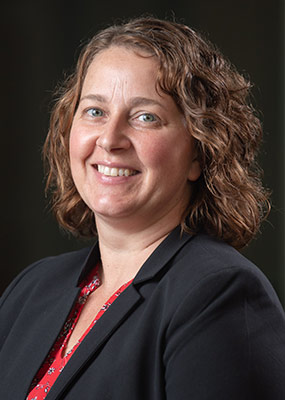Women in Kinesiology, Recreation and Sport Management: Dr. Terri Byers
Author: Terri Byers
Posted on Dec 3, 2021
Category: Research

My career in sport management and academia has developed over several decades through an interest in sport, business and the growing commercial development of sport and recreational opportunities. I attended Acadia University for my undergraduate degree in Physical Education (thinking I wanted to be a physical education teacher), but in year 3 had the chance to specialize in sport management and felt this was more my interest than teaching. I was inspired by many people, including the Dr Alex Wright who introduced me to Professor Trevor Slack who encouraged me the most and provided me with so many great opportunities, starting with graduate school in England at DeMontfort University.
I was in graduate school from 1996-98 when professional sport was in its infancy but growing at a rapid rate. Here, enrolled in an MA in Leisure Management, I quickly found myself travelling to professional conferences in the USA and Scotland. Then, I started teaching in Higher Education in England, even before I finished my Master’s and I enrolled in a PhD program with Trevor Slack, while working full-time. This was a great challenge but after finishing my PhD, and many conferences, consultancy contracts, funded research projects and workshops, I can honestly say none of it was planned. I followed my interests, first studying small businesses in sport and leisure and then volunteering, sport organizations (with a holistic interest in their control and operations), followed by legacy of mega sporting events.
I have published extensively in books, journals, book chapters and practitioner publications but the more research I did, the more critical my perspective of sport became. As many other scholars before me such as Earle Zeigler, Wendy Frisby and Sally Shaw have noticed, sport has the potential to have tremendous positive impacts on people’s lives but it is also a vehicle for oppression, discrimination and corruption. It is this darker side of sport that interests me now, and my research focuses on how and why unethical behaviors and practices occur in sport organizations as well as what can be done to counter these negative developments to increase social inclusion, regardless of age, race, ability or other aspects of diversity as found within our populations. I have worked with organizations in England and Canada to improve sport organization governance, across sport clubs, regional, national and international organizations.
My most recent project here in Canada was funded by the New Brunswick Innovation Foundation (NBIF) and examined perceptions of diversity and innovation in sport organizations in NB. The key findings of this will be used to develop virtual reality training for sport governing boards on increasing diversity and inclusion in sport. I see sport as a dynamic and complex activity, network and system that consists of many interconnected parts and so study sport organizations and governance allows me to examine a variety of interesting (but related) parts from culture, structures, control to broader trends and activities like Corporate Social Responsibility (CSR) and innovation in sport.
At times, research, teaching and administration (the big 3 pillars of my job) can be a stressful combination but there are so many things I have enjoyed throughout my career. I have met and worked with some amazing people who have helped shape the field of sport management, travelled around the globe and experienced different cultures and ways of doing things. I have enjoyed meeting students from all over the globe and learned a great deal from them, as they have from my experiences. The variety and freedom in choosing what and how to teach, research and do my job is always challenging and therefore extremely rewarding.
